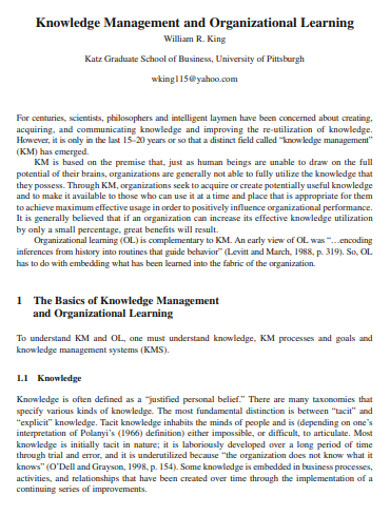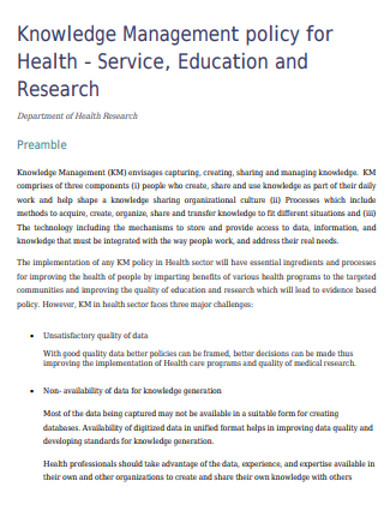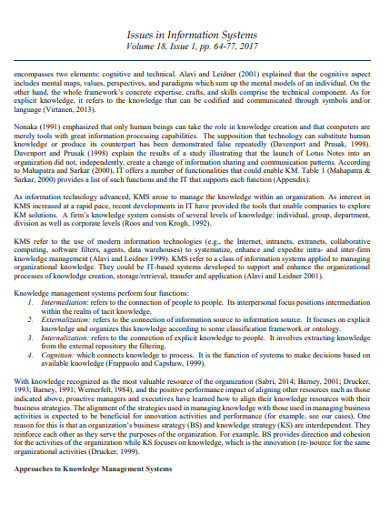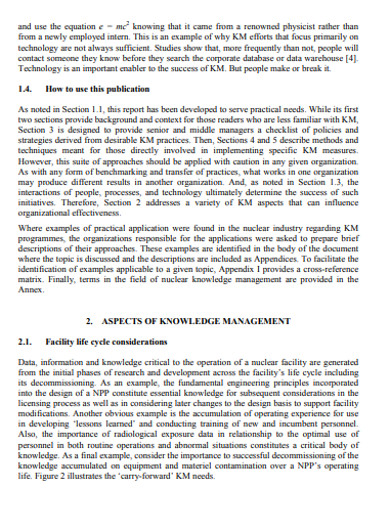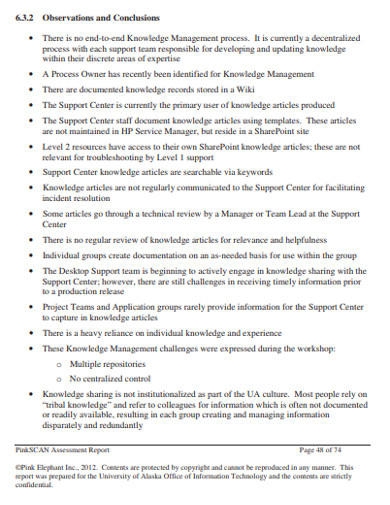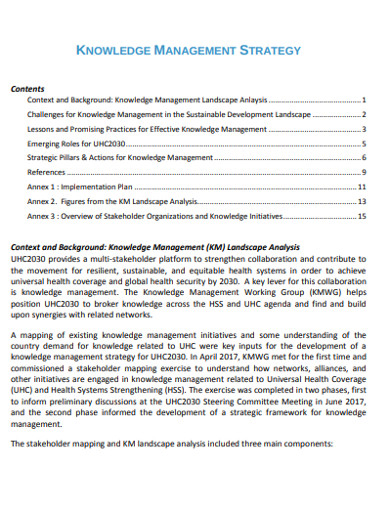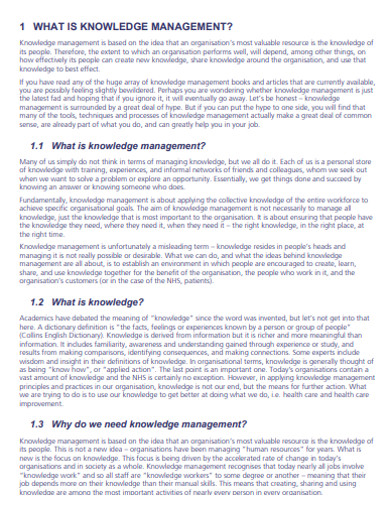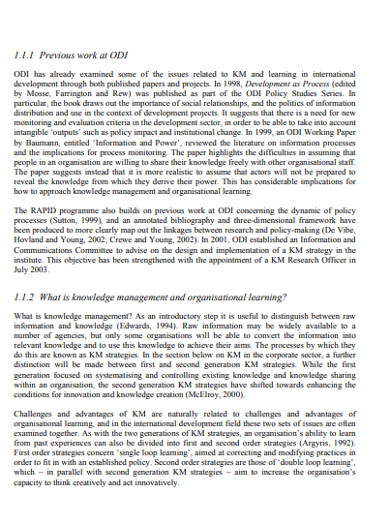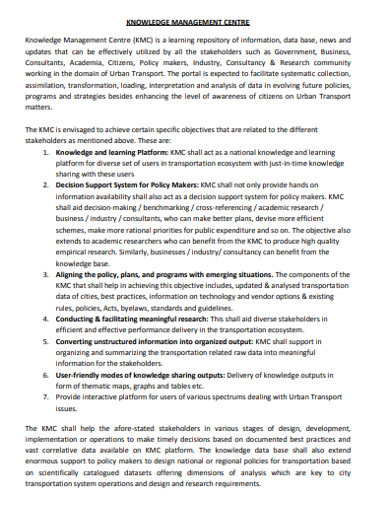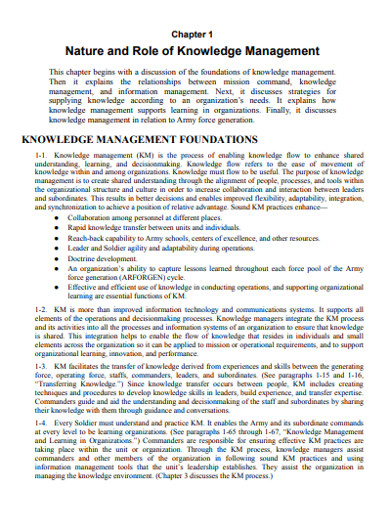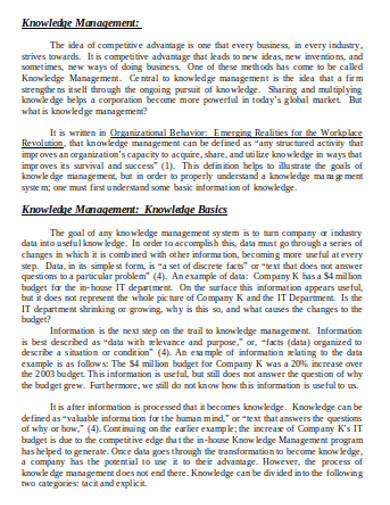14+ Knowledge Management Examples
In your opinion, how important is knowledge management to the businesses that are currently existing? Do you think that it will be beneficial if a business focuses more on the enhancement of its knowledge management? According to the article posted in Harvard business review(HBR), the employees of the companies listed in the Fortune 500 fail to share what they know effectively. As a result, the businesses suffer and wasted more than 31.5 billion USD per year.
How Outsourcing Affects Knowledge Management?
It is undeniable that outsourcing has gained its popularity. Many companies outsource services from the Business Process Outsourcing(BPO) firms for advantageous reasons such as cost benefits. Traditionally, organizations mostly use the informal method of training new workers, such as shadowing and observing. This learning method, however, may not work if you are going to outsource services from third party companies from other states or countries. Thus, to mitigate this dilemma, companies have to find a way to effectively transfer organizational knowledge to third party employees, which is by enhancing the company’s knowledge management.
What is Knowledge Management?
Knowledge management is a systematic strategy of utilizing organizational knowledge to achieve organizational goals. This method involves the creation, sharing, using, and managing the said learning. Various types of companies use this type of management as part of their business strategy, focusing on their organizational goals, such as performance improvement and innovation.
10+ Knowledge Management Examples
Download the examples below to improve your learning about knowledge management further.
1. Knowledge Management White Paper Template
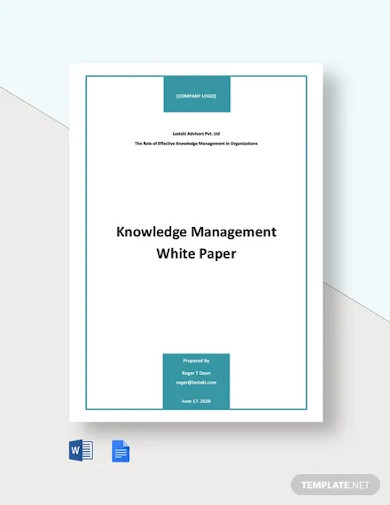
2. Knowledge Management Mind Map Template
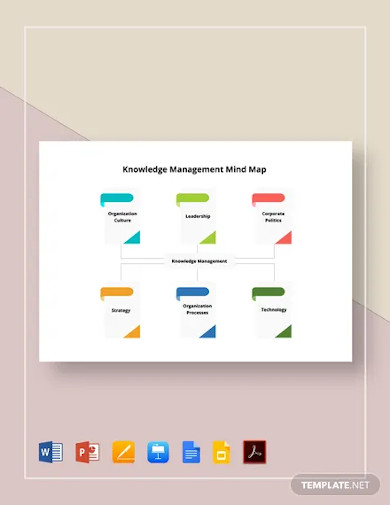
3. Knowledge Management Roadmap Template
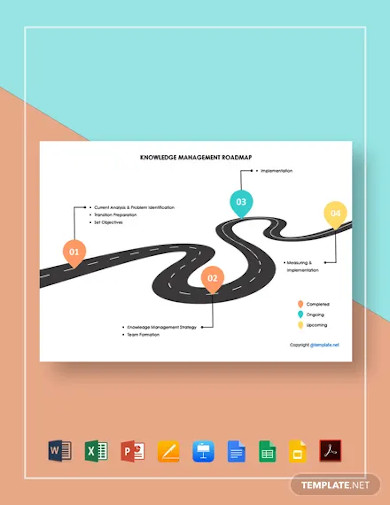
4. Knowledge Management Resume Template
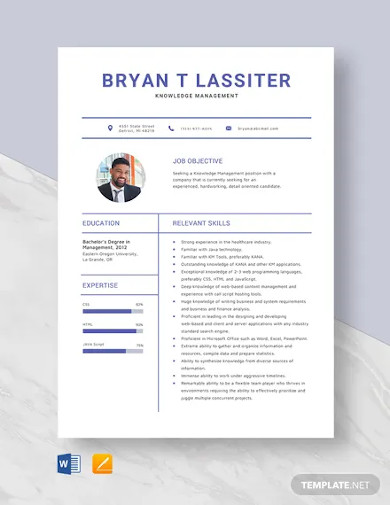
5. Knowledge Management and Organizational Learning Example
6. Knowledge Management Policy for Health Example
7. Knowledge Management Systems Example
8. Knowledge Management for Nuclear Industry Example
9. Basic Knowledge Management Example
10. Knowledge Management Strategy Example
11. Standard Knowledge Management Example
12. Printable Knowledge Management Example
13. Knowledge Management Center Example
14. Nature and Role of Knowledge Management Example
15. Knowledge Management in DOC
How to Develop a Great Knowledge Management?
Enhancing your firm’s knowledge management can be tricky. However, you can avoid unnecessary issues in implementing your goal by going over the following knowledge management development tips.
1. Organize into Different Segments
In real life, the processes involved in a business can be quite numerous. Imagine that you already have a long to-do list for today, and your boss suddenly requests to do another task on top of your existing plan. To do it, you need to find the relevant manuals from the various files on your desk. You will end up doing your tasks in a rush, which makes you prone to doing things incorrectly. By arranging your organizational knowledge in categories and cutting the items in different segments, your team can quickly look and effectively perform a particular task. Luckily, you can use knowledge management software for more effective segmentation.
2. Set a Monthly Goal
There are specific tasks or action plan that can last more than a month to complete. Due to the lengthy-time duration and the inconstant company priorities, there are chances that you will lose track of the progress of these activities. To ensure that you can attain each of your corporate goals, set a monthly benchmark to monitor its progress.
3. Utilize Knowledge Management for Other Purposes
Providing outstanding customer service is a very crucial action for your business to keep going, making it one of the items that you need to prioritize in knowledge management. However, you can also use this management method for other vital parts of the business, such as marketing, HR, accounting, etc.
4. Optimize the Use of Searching Method
To a more efficient usage of the stored knowledge, it is essential to come up with a reliable method to retrieve the information you upload to the system. To do it, your team needs to adhere to a standardized procedure, which may include uploading contents with specific attachments. In this way, your team can retrieve the most relevant information according to your query.
5. Refine the Training Procedure
There are many ways to train new workers in your company. Setting up training with a classroom environment is one of the most commonly used methods due to its proven effectivity. However, if you are going to expand your business by outsourcing services from third party companies located in other states or countries, you will need an alternative practical training method to lessen the training cost. One way to do it is to gather the training information to your business knowledge and share it with the hired third party firm. However, it will not be as easy as counting from 1 to 3. For a more efficient knowledge transfer, refine the training procedures before uploading it.
6. Use a Single Framework for Content Creation
As technology enhances, your business’ knowledge management also has to adapt. This strategy will undergo major transitions to keep it up-to-date. If your team follows multiple structures in creating and saving the contents to your organizational knowledge system, the change that your company has to undergo can be more difficult. Thus, you have to use a single framework to make this transition easier. It will also be beneficial if you are hiring multiple individuals to manage the learning system.
7. Encourage Teamwork
To develop powerful knowledge management, you have to do more than storing information. Have your team work together to ensure that they save and create well-organized content. Letting your people know that their contributions are valuable and vital will also help.
With the information that we have provided in this article, it is clear that knowledge management has a significant role in making your business flourish. Keep it in mind, though, that you cannot enhance your firm’s learning management overnight. It requires patience and perseverance to achieve the desired result.



